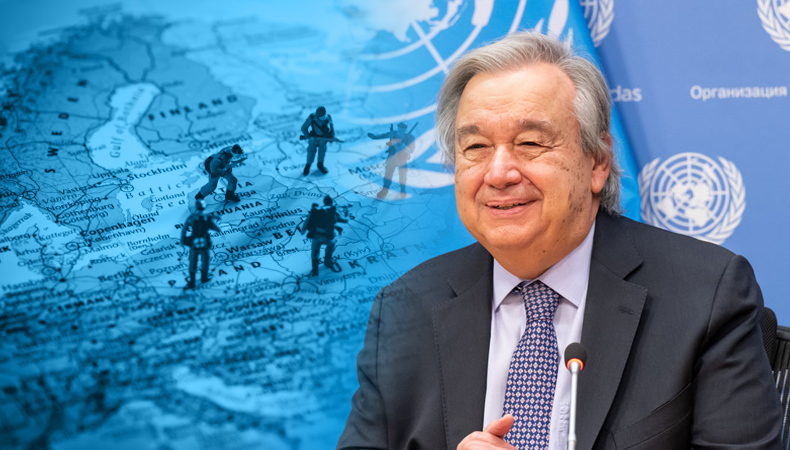World Geopolitical Disorder Evident in UN Security Council

The absence of world leaders at this week’s United Nations General Assembly reflects the power tussle on the global stage. It shows a shifting priority in diplomacy in an increasingly fragmented world.
Besides superpower tensions, it highlights that the world body – the UN Security Council is in trouble.
UN Secretary-General Antonio Guterres brushed off the absentees saying this is not a vanity fair. He highlighted the United Nations as a political body in which respective governments are represented. “What matters is that countries are represented by someone that can rise to the present moment.”
World Needs Statesmanship
Guterres believes the world needs “statesmanship, and not gamesmanship and gridlock”. He said Russia’s invasion of Ukraine unleashed a nexus of horror. “Further, nuclear disarmament is at a standstill while countries develop new weapons and make new threats. Across Sahel, a series of coups is destabilizing the region as terrorism is gaining ground. Sudan is descending into full-scale civil war.”
The UN said the global humanitarian system is on the verge of collapse. “We cannot effectively address problems as they are if institutions don’t reflect the world as it is.” Guterres warned the world is inching ever closer to a great fracture in economic and financial systems – it’s reform or rupture. “We have some symptoms, but we are not yet in an irreversible situation. So, we are clearly on time to avoid it. But we are seeing some aspects in which we see the risks of division piling up.”
Keep Reading
In 2022, the UN chief said the world was becoming alarmingly divided. And this year, the absence of big powers, mainly Xi Jinping, Rishi Sunak, Emmanuel Macron and Vladimir Putin.
A Multi-polar World
Gerard Araud, former French ambassador to the United Nations, believes multilateralism is seriously compromised in an increasingly multi-polar world. This has been further driven by the war in Ukraine and the rivalry between the US and China.
Experts say multilateralism affects smaller powers (countries). There are small and mid-size countries at the United Nations, but they are not in coalitions with big countries, like G7, BRICS, or G20. Earlier in the year, Guterres told the Security Council that tensions between major powers are at an historic high. He called for multilateral responses to prevent and resolve conflicts, and manage economic uncertainty.
At the brunt of this discord are civilians.







